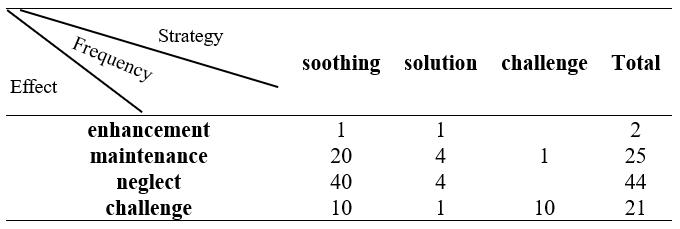The Complaint Response Strategies in the Airline Outbound Calls from the Perspective of Rapport Management
Abstract
Customer complaints can have a significant influence on the rapport and relationships between the customer and the company. This article aims to study the company’s response strategies for customer complaints from the perspective of rapport management, collecting the data from the airline outbound calls. Results show that there are three types of customer complaints and three kinds of response strategies related, but the effect of strategies on rapport management is not satisfying.
Downloads
References
Feng, W., & Ren, W. (2019). “This is the destiny, darling”: Relational acts in Chinese management responses to online consumer reviews. Discourse Context Media, 28, 52-59. https://doi.org/10.1016/j.dcm.2018.09.003
Goffman, E. (1955). On face-work: An analysis of ritual elements in social interaction. Psychiatry: Journal for the Study of Interpersonal Processes, 18, 213-231. https://doi.org/10.1080/00332747.1955.11023008
Ho, V. (2017a). Achieving service recovery through responding to negative online reviews. Discourse Commun, 11 (1), 31-50. https://doi.org/10.1177%2F1750481316683292
Ho, V. (2017b). Giving offence and making amends: how hotel management attempts to manage rapport with dissatisfied customers. Journal of Pragmatics, 109, 1-11. https://doi.org/10.1016/j.pragma.2016.12.001
Ho, V. (2018). Exploring the effectiveness of hotel management's responses to negative online comments. Lingua, 216, 47-63. https://doi.org/10.1016/j.lingua.2018.10.004
Javornik, A., Filieri, R., & Gumann, R. (2020). “Don't Forget that Others Are Watching, Too!” The Effect of Conversational Human Voice and Reply Length on Observers' Perceptions of Complaint Handling in Social Media. Journal of Interactive Marketing, 50, 100-119. https://doi.org/10.1016/j.intmar.2020.02.002
Lee, Y. L., & Song, S. (2010). An Empirical Investigation of Electronic Word-of-Mouth: Informational Motive and Corporate Response Strategy. Computers in Human Behavior, 26(5), 1073-1080. https://doi.org/10.1016/j.chb.2010.03.009
Levy, S., Duan, W., & Boo, S. (2013). An analysis of one-star online reviews and responses in the Washington, D.C., lodging market. Cornell Hospitality Quarterly, 54(1), 49-63. https://doi.org/10.1177%2F1938965512464513
Phau, I., & Puspita Sari, R. (2004). Engaging in complaint behaviour: An Indonesian perspective. Marketing Intelligence & Planning, 22(4), 407-426. https://doi.org/10.1108/02634500410542770
Singh, J., & Widing, R. (1991). What Occurs Once Consumers Complain? A Theoretical Model for Understanding Satisfaction/ Dissatisfaction Outcomes of Complaint Responses. European Journal of Marketing, 25(5), 30-46. https://doi.org/10.1108/03090569110140489
Sparks, B., & Bradley, G. (2017). A ‘triple A’ typology of responding to negative consumer generated online reviews. Journal of Hospitality & Tourism Research, 41(6), 719-745. https://doi.org/10.1177%2F1096348014538052
Spencer-Oatey, H. (ed.). (2008). Culturally Speaking: Culture, Communication and Politeness Theory (2nd ed.). London: Continuum.
Swales, J. (1981). Aspects of Article Introductions. Birmingham, AL: University of Aston.
Van Noort, G., & Willemsen, L. M. (2012). Online damage control: The effects of proactive versus reactive webcare interventions in consumer-generated and brand-generated platforms. Journal of Interactive Marketing, 26(3), 131-140. https://doi.org/10.1016/j.intmar.2011.07.001
Zhang, Y., & Vásquez, C. (2014). Hotels’ responses to online reviews: Managing consumer dissatisfaction. Discourse, Context and Media, (6), 54-64. https://doi.org/10.1016/j.dcm.2014.08.004


This work is licensed under a Creative Commons Attribution 4.0 International License.
Copyright for this article is retained by the author(s), with first publication rights granted to the journal.
This is an open-access article distributed under the terms and conditions of the Creative Commons Attribution license (http://creativecommons.org/licenses/by/4.0/).









1.png)









1.png)











